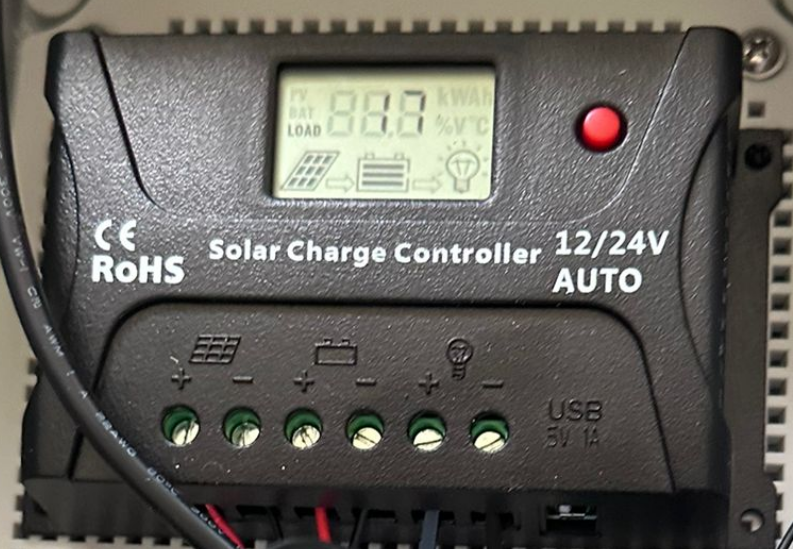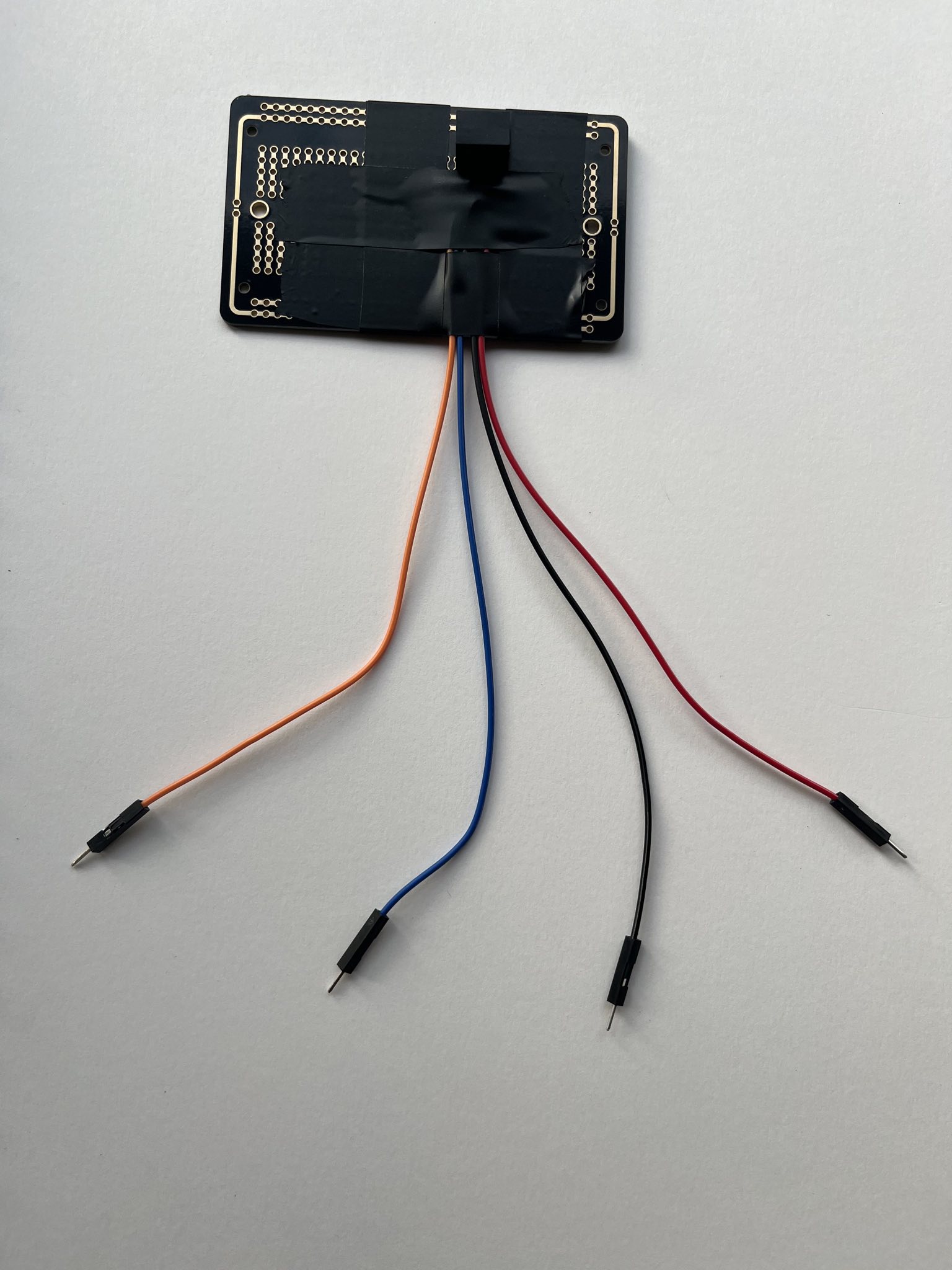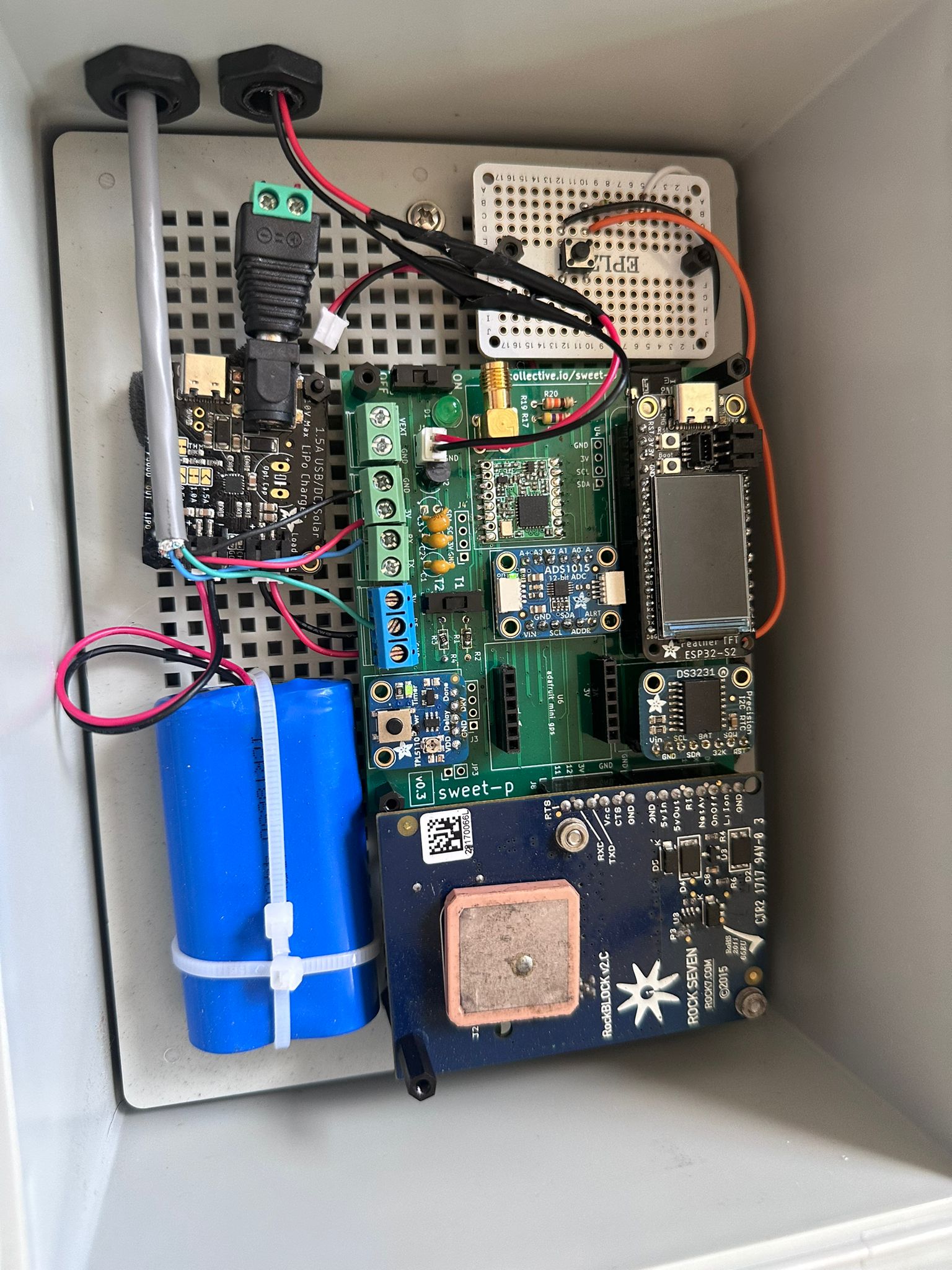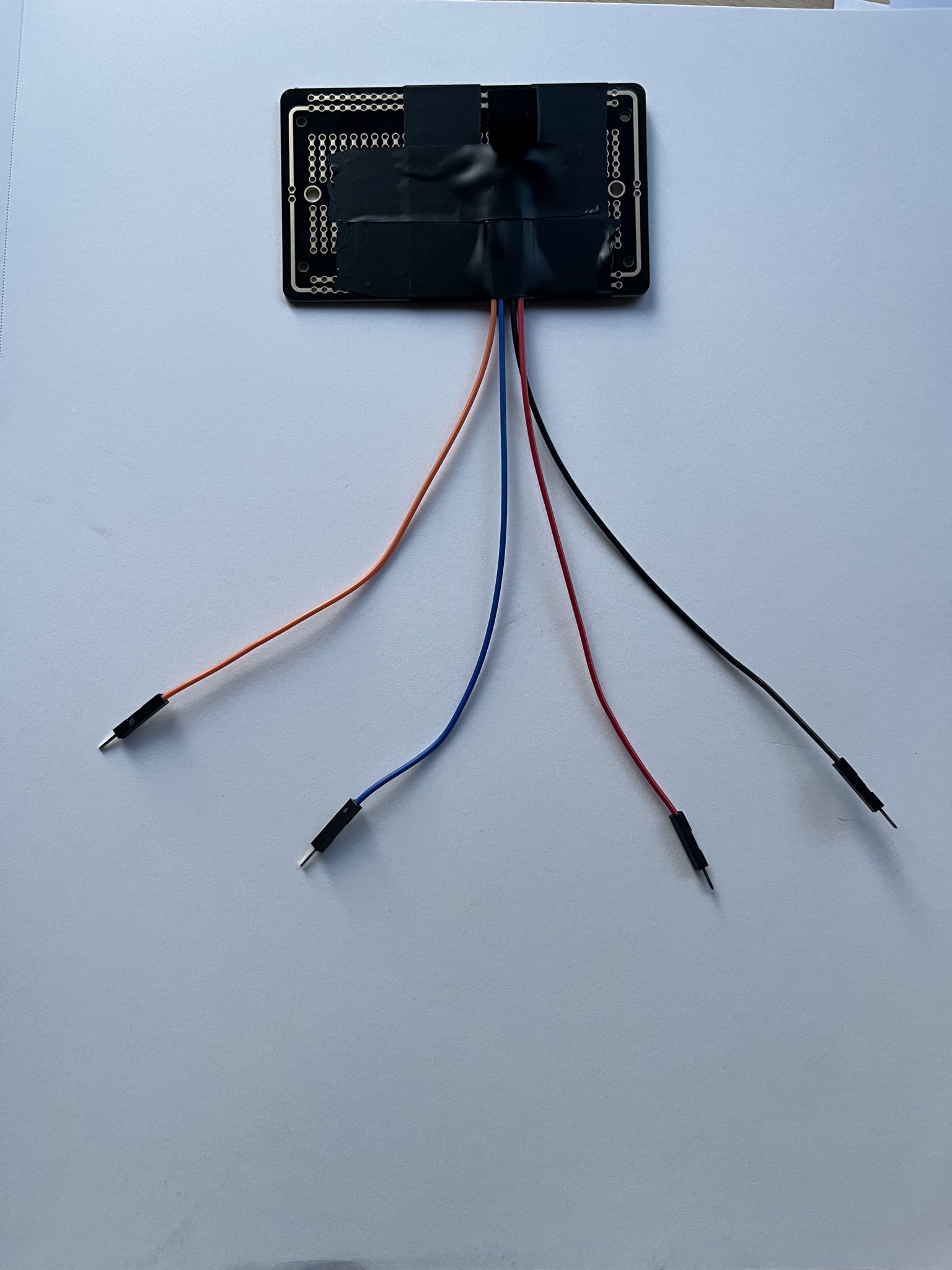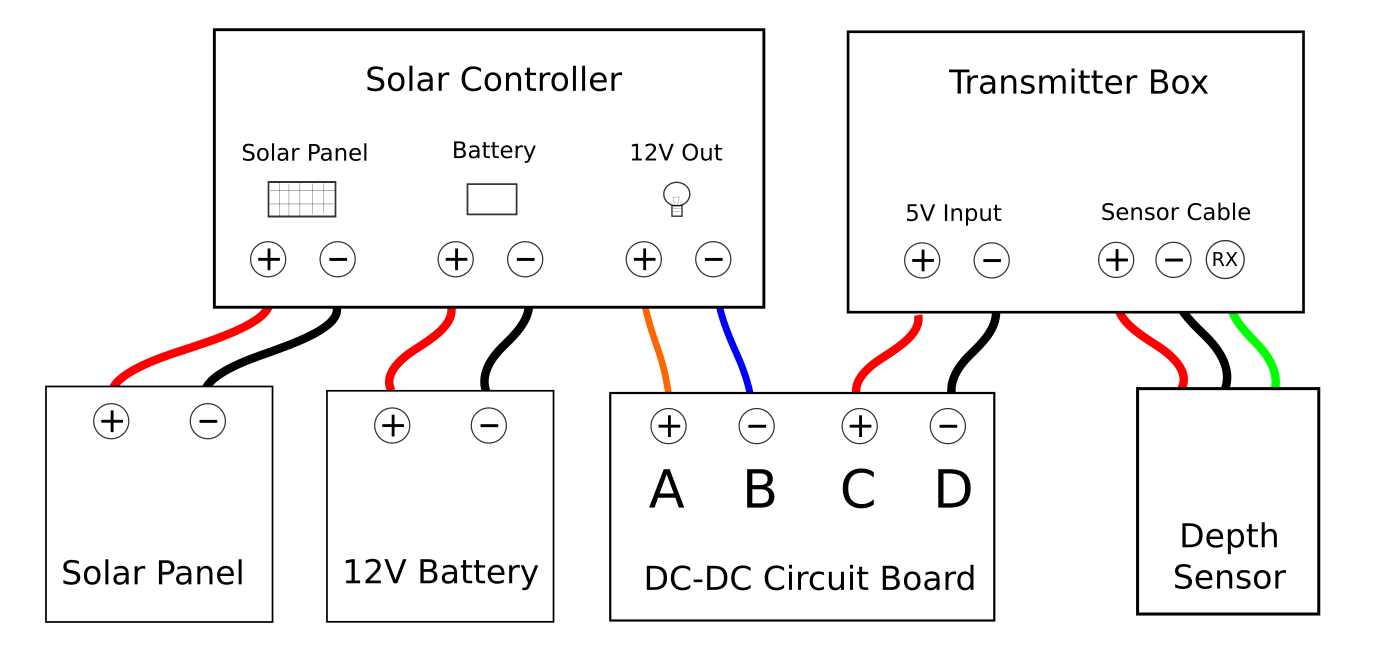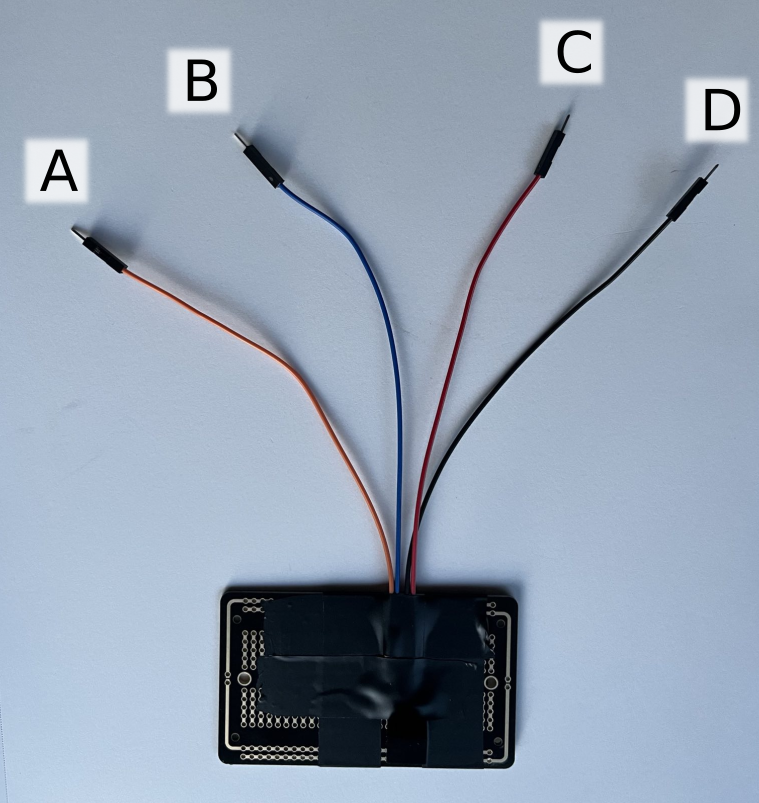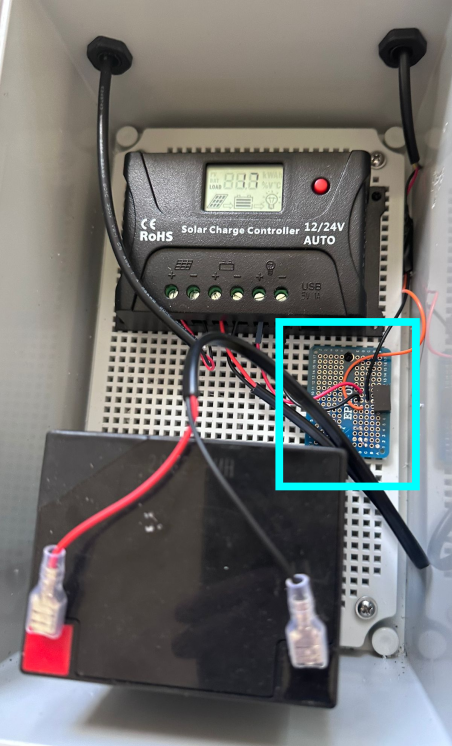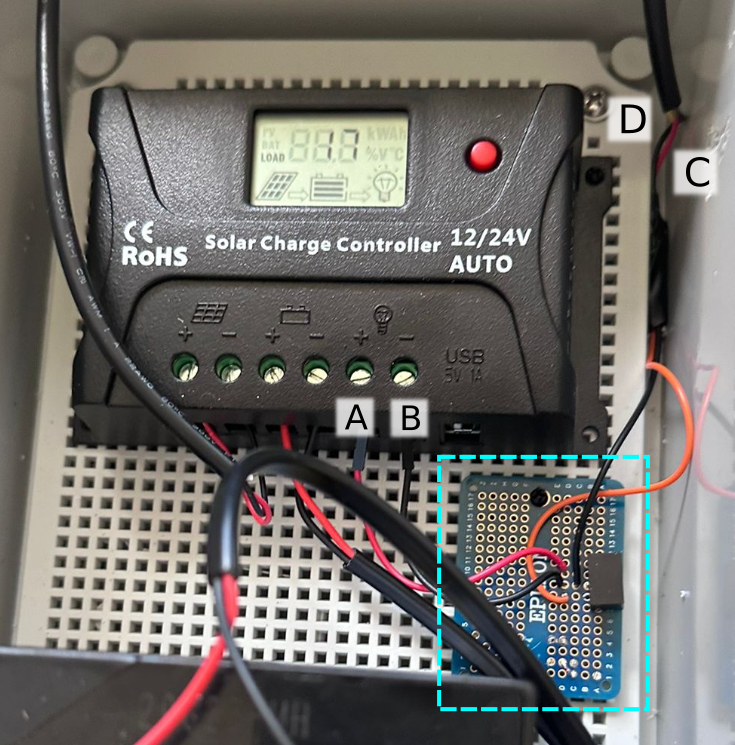Edge Collective
Marsh Storage Upgrade
Upgrading Marsh Storage to gps and a condensation-proof tank sensorSat Dec 16 04:29:19 PM EST 2023
Working on adding gps module
Primary guide on adafruit mini gps
Able to get current time from gps! Note: it's UTC time.
Goal: to send only at 5 AM and 1 PM MST
Tue Dec 19 03:50:14 PM EST 2023
Going to try to use RTC instead of GPS -- might remove a failure mode (connecting to gps network) ...
Circuitpython code for the DS3231
Rockblock codes: https://learn.adafruit.com/using-the-rockblock-iridium-modem/basic-test
Fri Dec 22 05:29:03 PM EST 2023
Note: the old smithereen test code is at http://bayou.pvos.org/data/t2tn5x6krzvw?plot_param=temperature_c
Sat Dec 23 12:18:36 PM EST 2023
http://bayou.pvos.org/data/hynj3bxfuzst?plot_param=distance_meters&limit=43
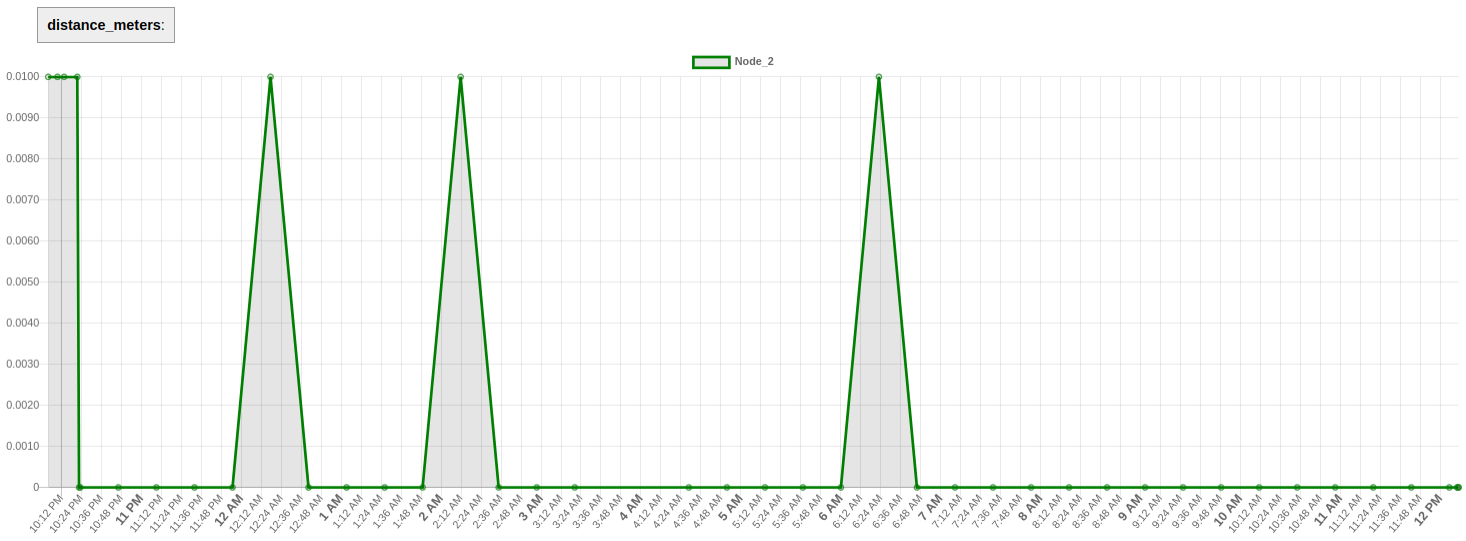
This code seems to be working well: https://github.com/edgecollective/sweet-p/blob/12ce832cbadbaeb9d29aa78e8f4a9ed8c1cbeef8/ver_0.3/firmware/grassnomads/v2.0/utilities/satellite_hour.py
This code also works well, and sends temperature: https://github.com/edgecollective/sweet-p/blob/a9dcde832bb8d2363664934cd545ba1b778fba73/ver_0.3/firmware/grassnomads/v2.0/utilities/satellite_temperature.py
Tue Dec 26 09:24:59 PM EST 2023
Sending data every 3 hours using new firmware:
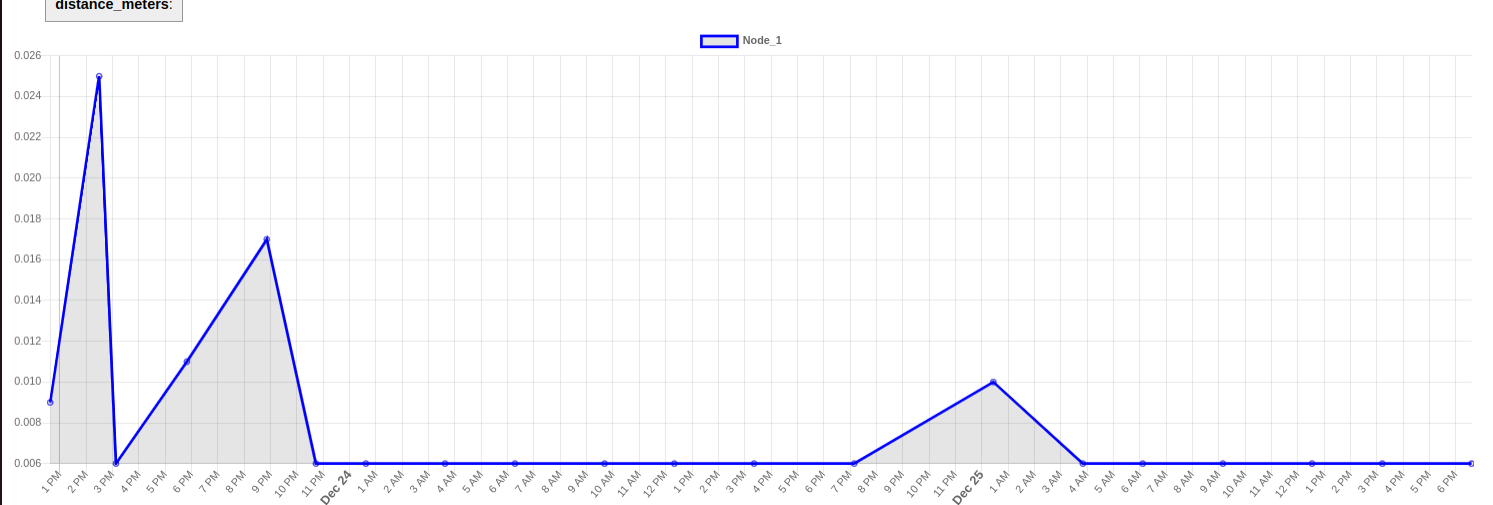
Latest pics of hardware:
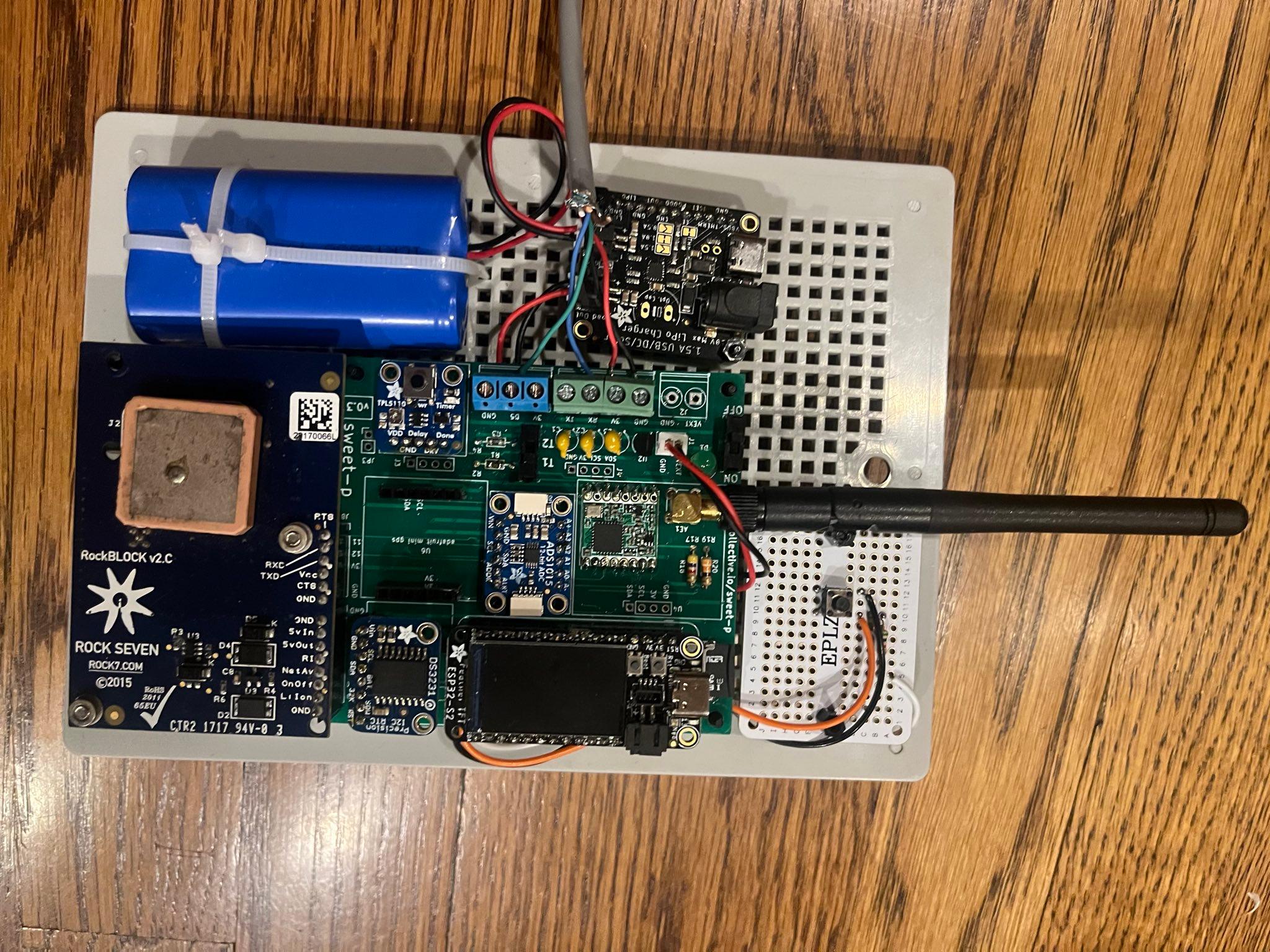
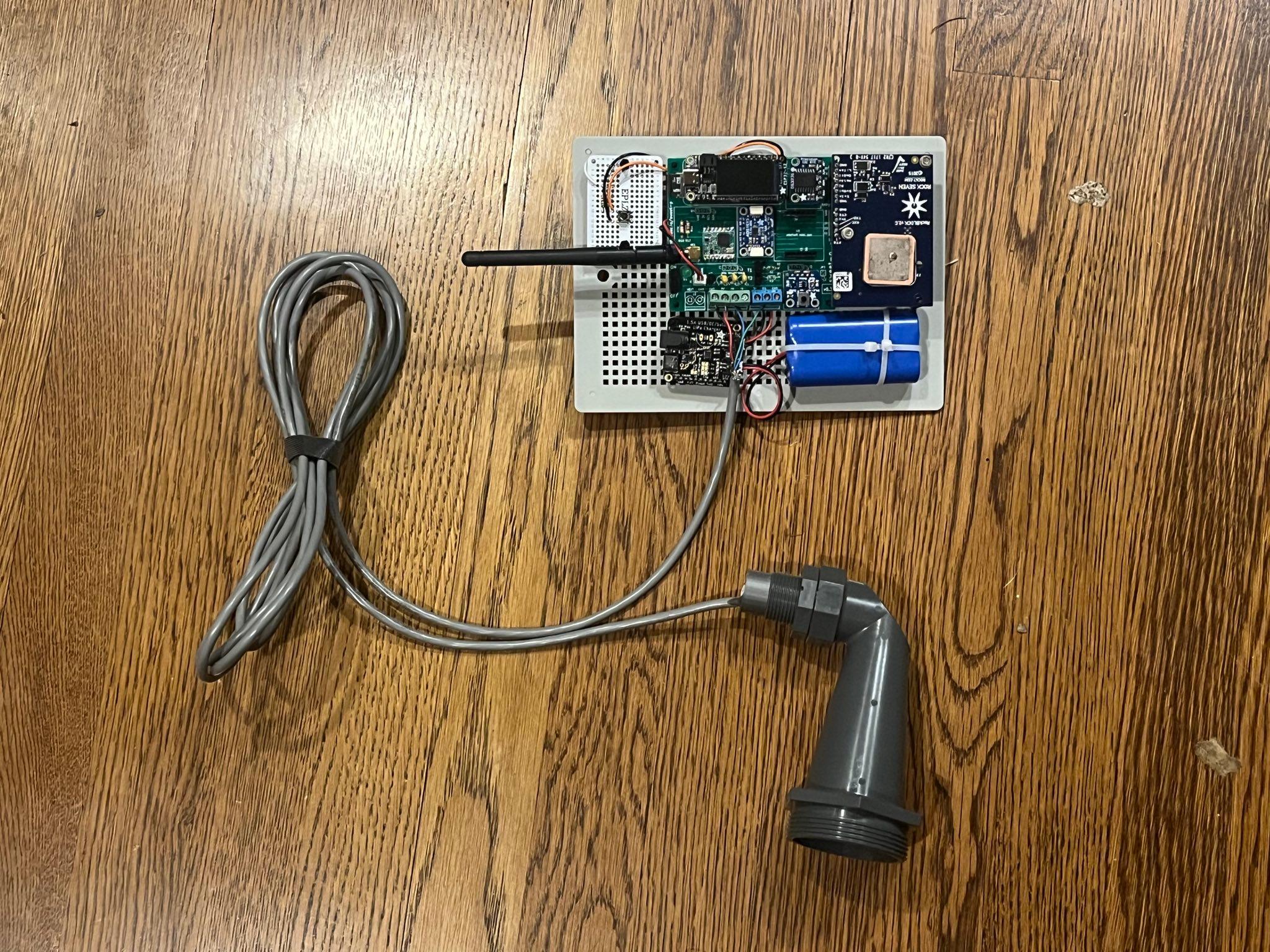
Tue Jan 9 03:23:31 PM EST 2024
Timing via the TPL5100 (see ref for resistor-controlled timings on Adafruit TPL5110 usage guide
Currently, T1 -- 81.5K -- approx 25 minutes T2 -- 118.7K -- approx 55 minutes
We want more like 10 minutes. But might be too short, induce too rapid a battery drain. So, keep T1 at 25 minutes as a backup; switch T2 to something between 54K and 58K.
Looks like I have 51K, and 68K. So, 68K would be between 10 and 20 minutes.
Let's try 51K. And also minimize the wakeup time. And turn off the radio transmit (if it is).
Looks like true resistance is 50.5 K -- which is about 7.5 min. Let's try it.
Current code:
- sends if the hour is a multiple of 3
- sends lora radio message
Let's cut out the lora for now ...
Updated code testing Jan 9th overnight is here
Sun Feb 4 10:25:36 AM EST 2024
Results of deployment late Jan / early Feb 2024 ...
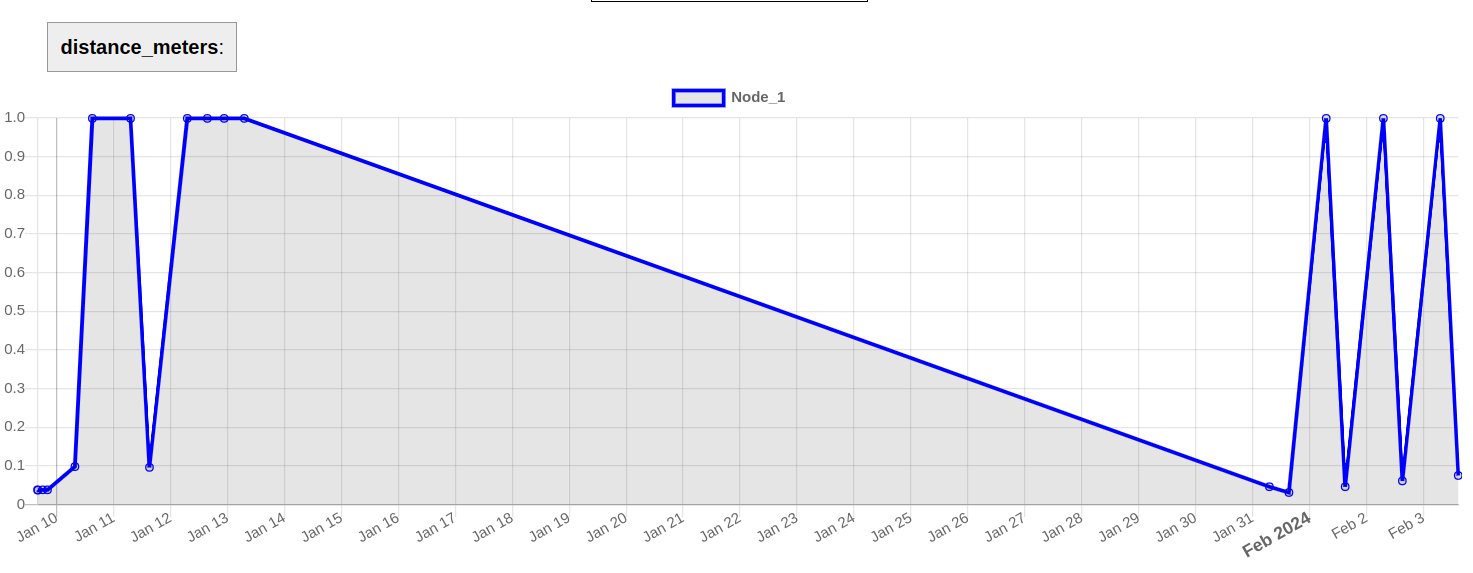
Wed Feb 7 01:16:07 PM EST 2024
Looks like the sensor fails (reads '999 cm') whenever the temp falls below 3 C or so ...
(Note that after Feb 5 or so, we fixed a bug that was dividing the distance by an extra factor of 10; thus the jump -- before, a reading of '999 cm' would show up as '1 meter'; afterwards it shows up as '10 meters' on the graph.)
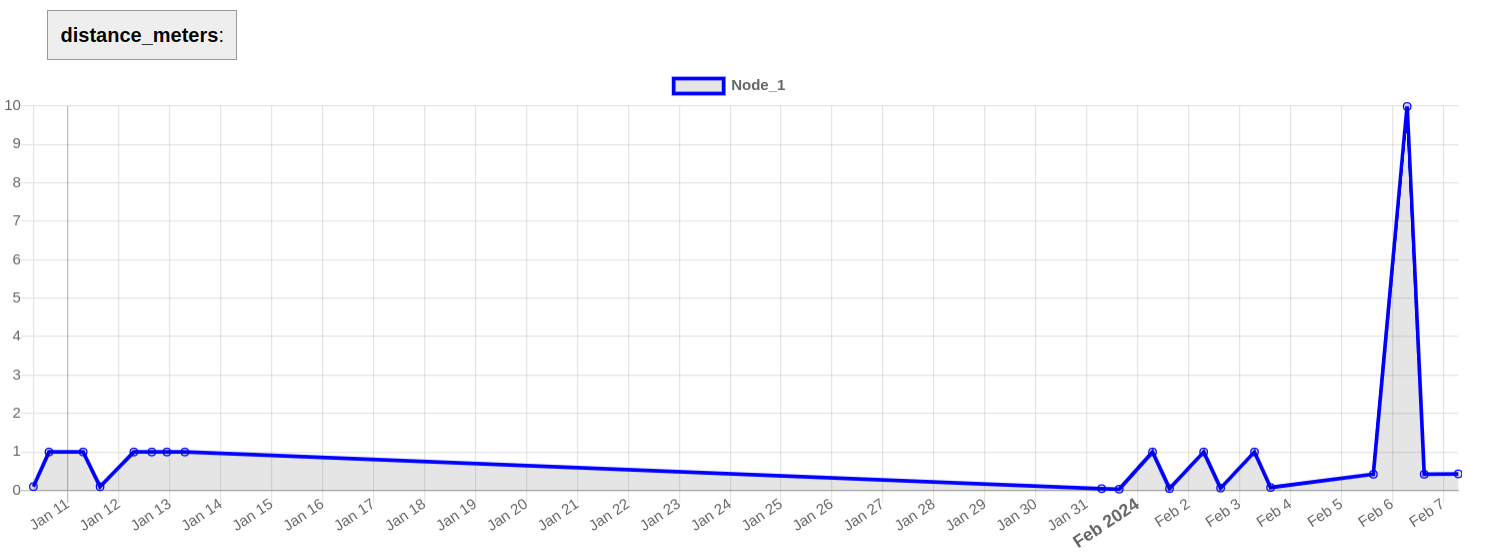
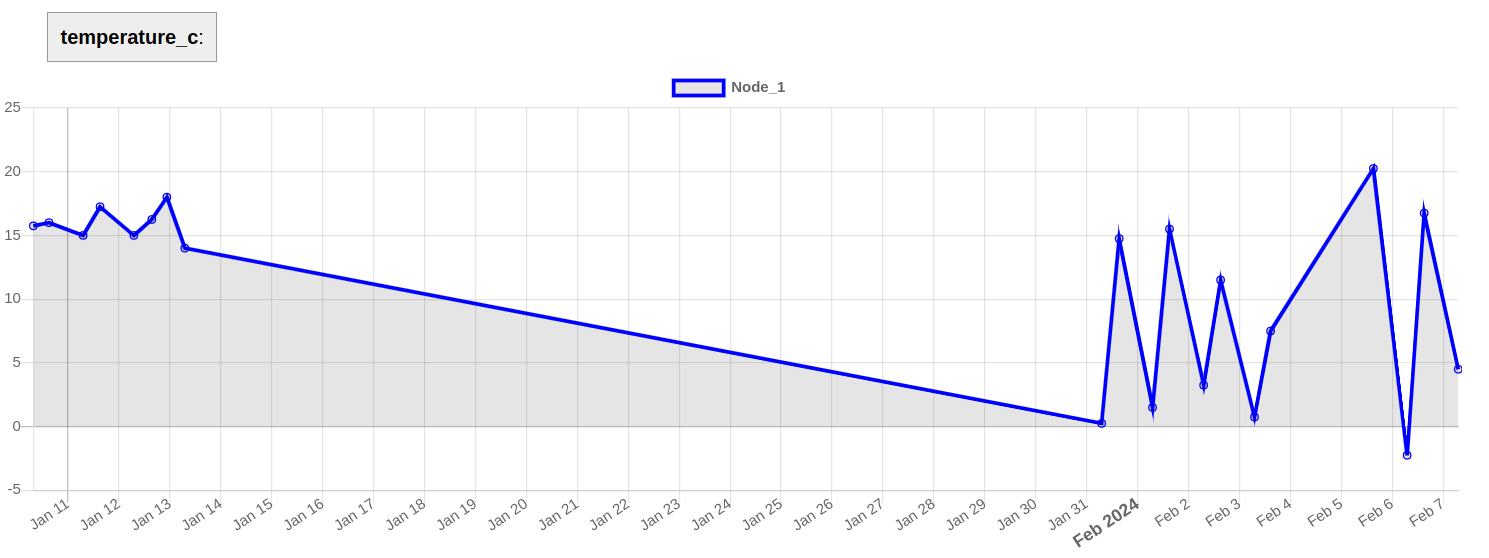
Wed Feb 7 07:28:56 PM EST 2024
Details on RockBlock 3.7V input pin:
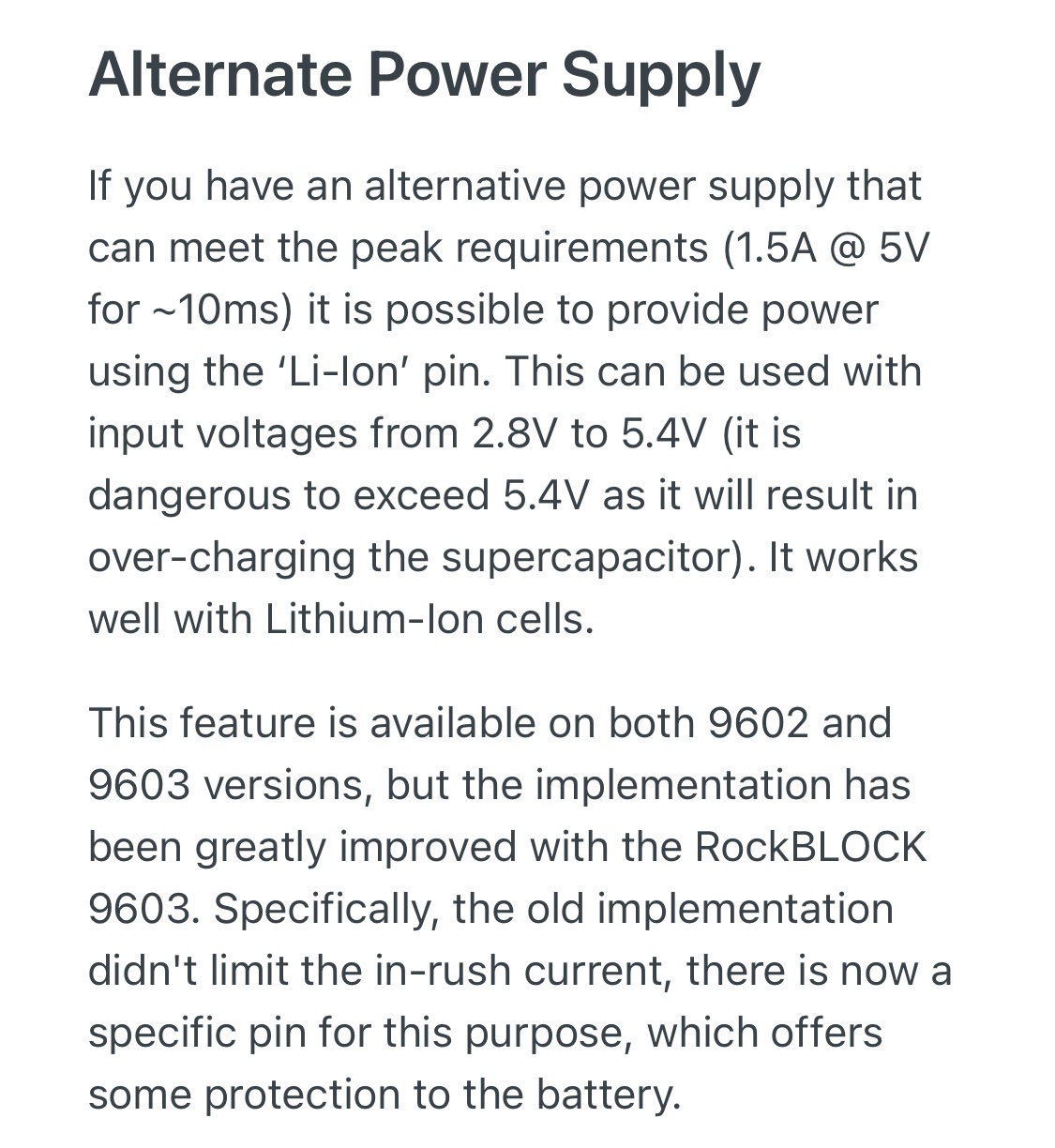
Wed Feb 21 08:35:49 PM EST 2024
http://bayou.pvos.org/data/gcr565avyan2?plot_param=distance_meters&limit=20
(note -- the above link will give latest 20 data points -- so not the data below, as more data will have been added -- just giving feed as reference)
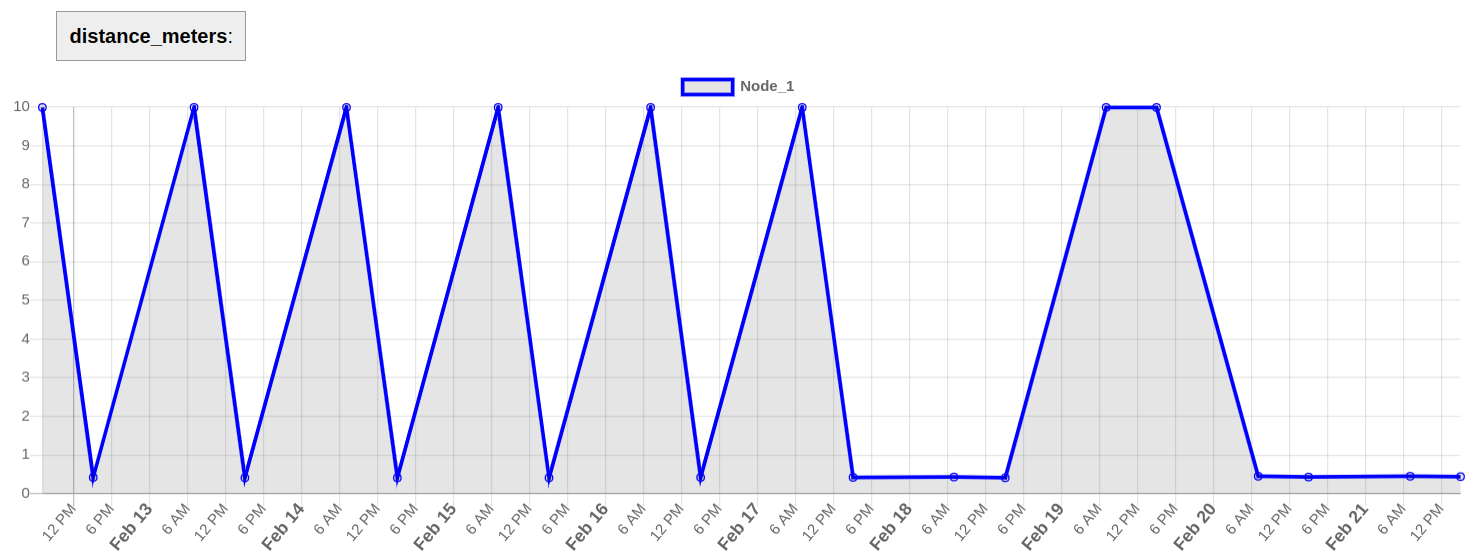
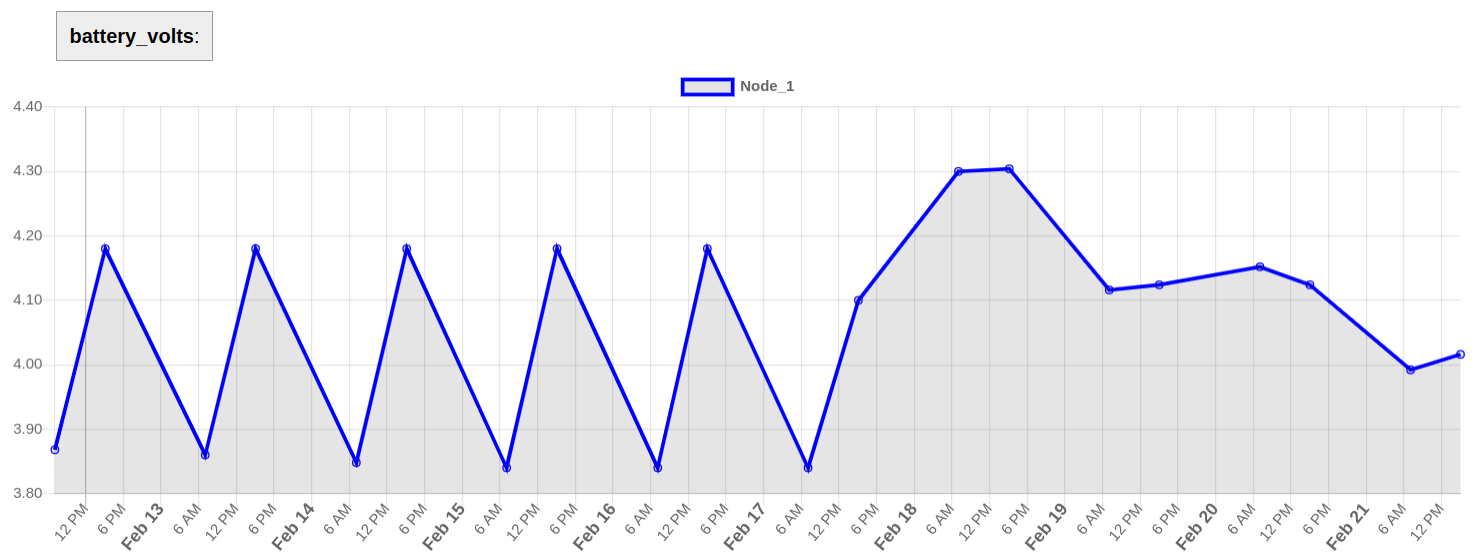
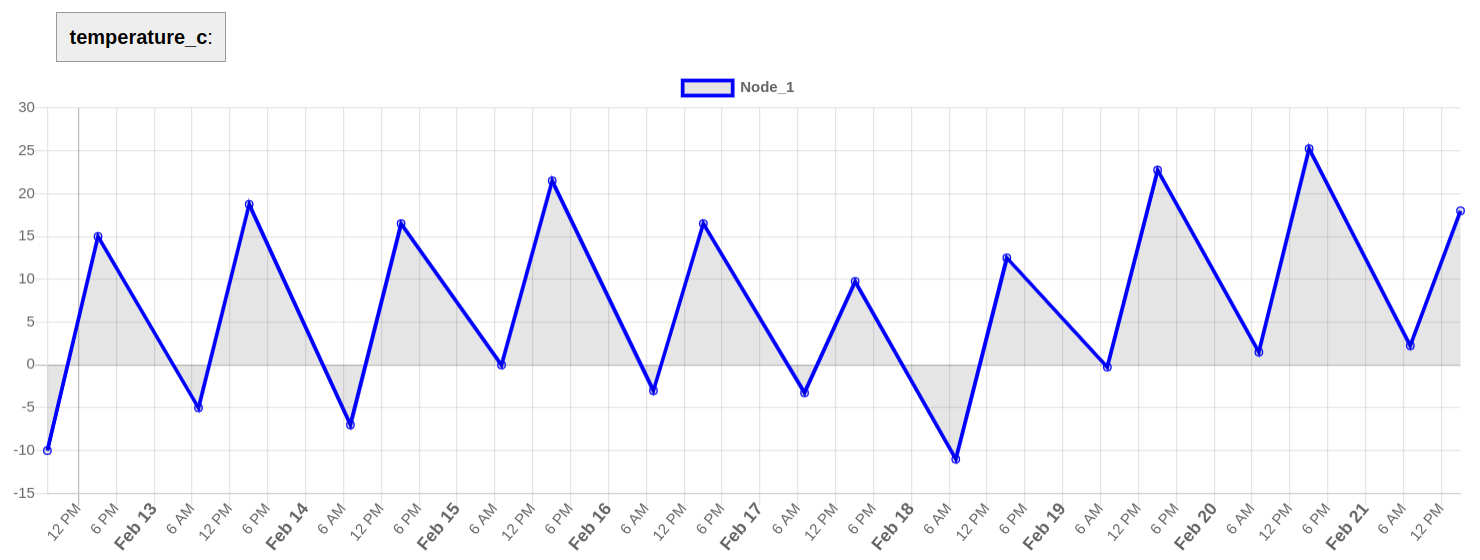
Fri Feb 23 05:50:41 PM EST 2024
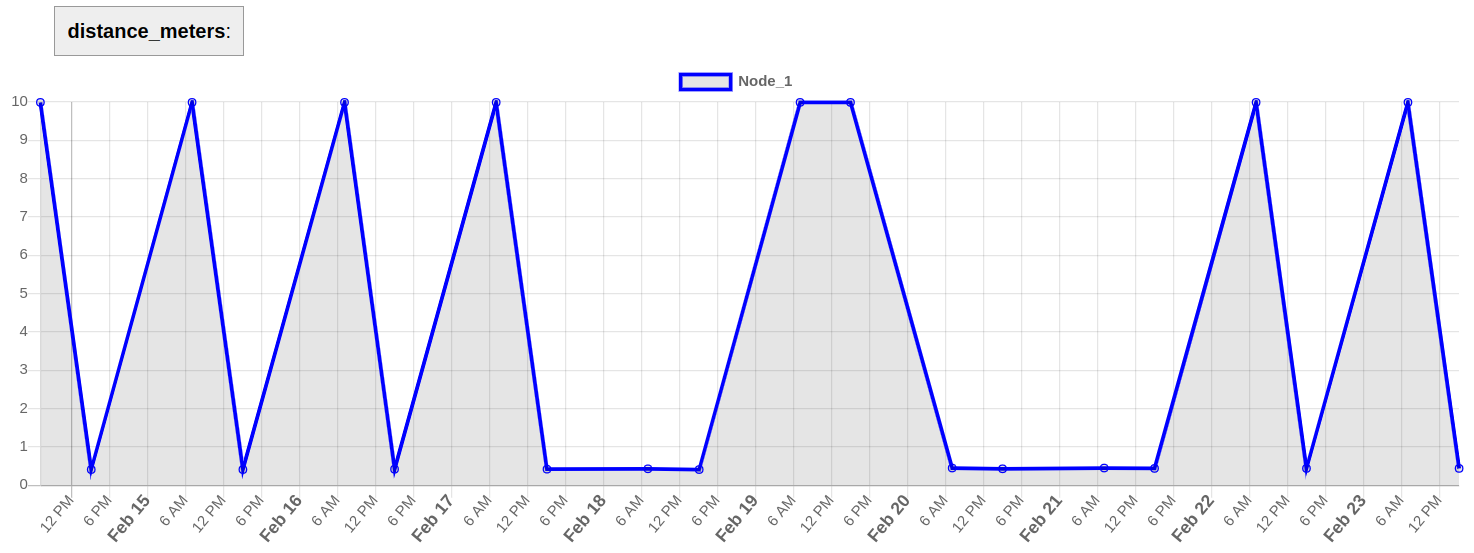
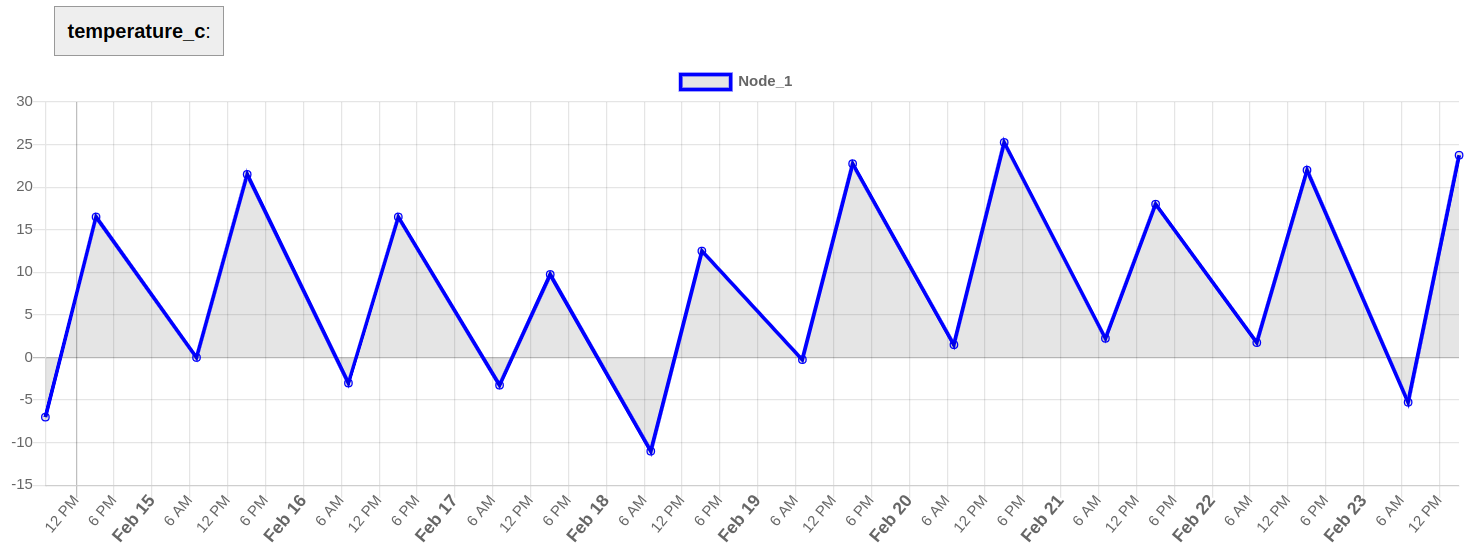
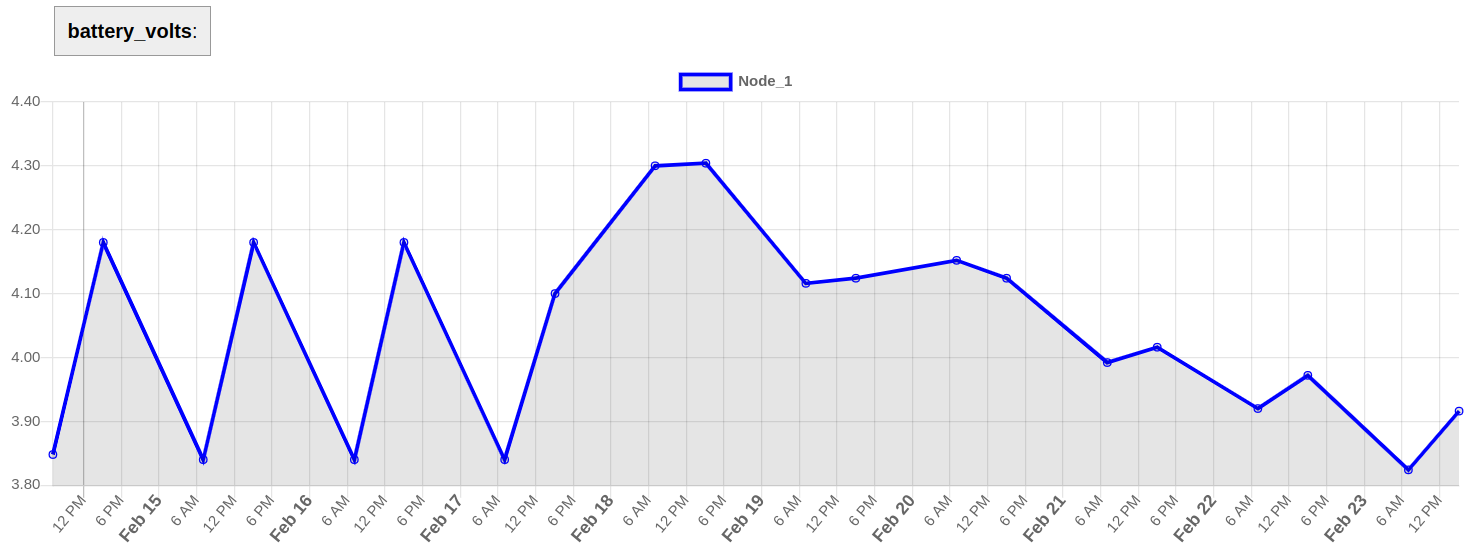
Sat Feb 24 09:33:46 AM EST 2024
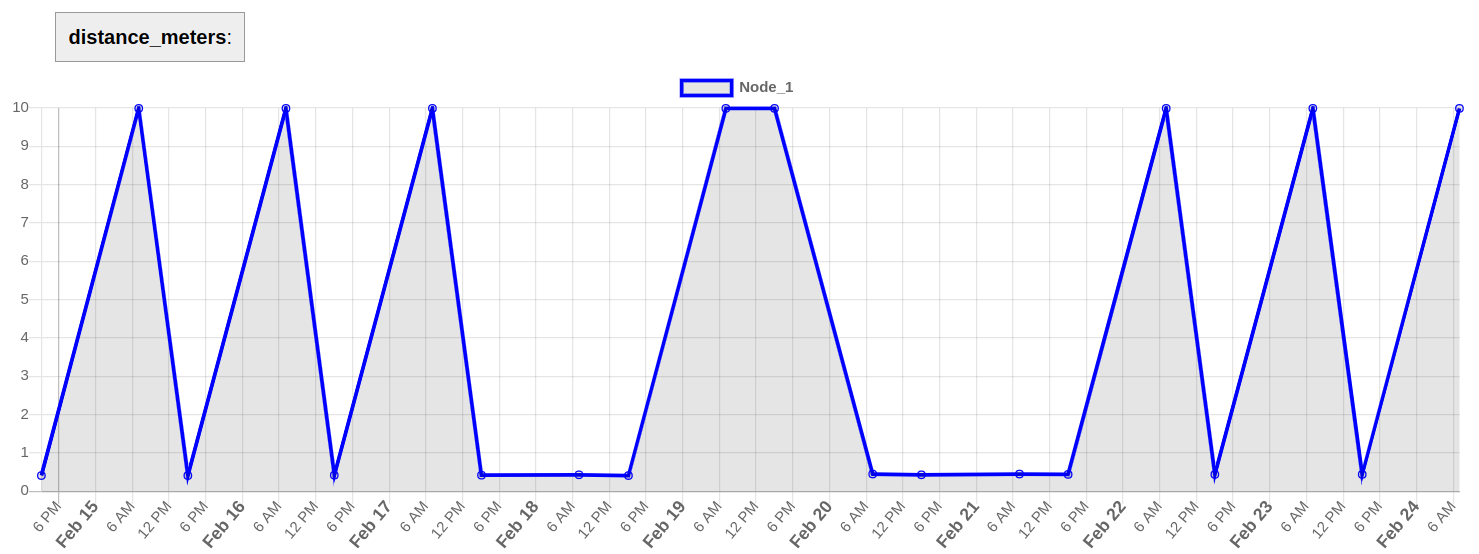
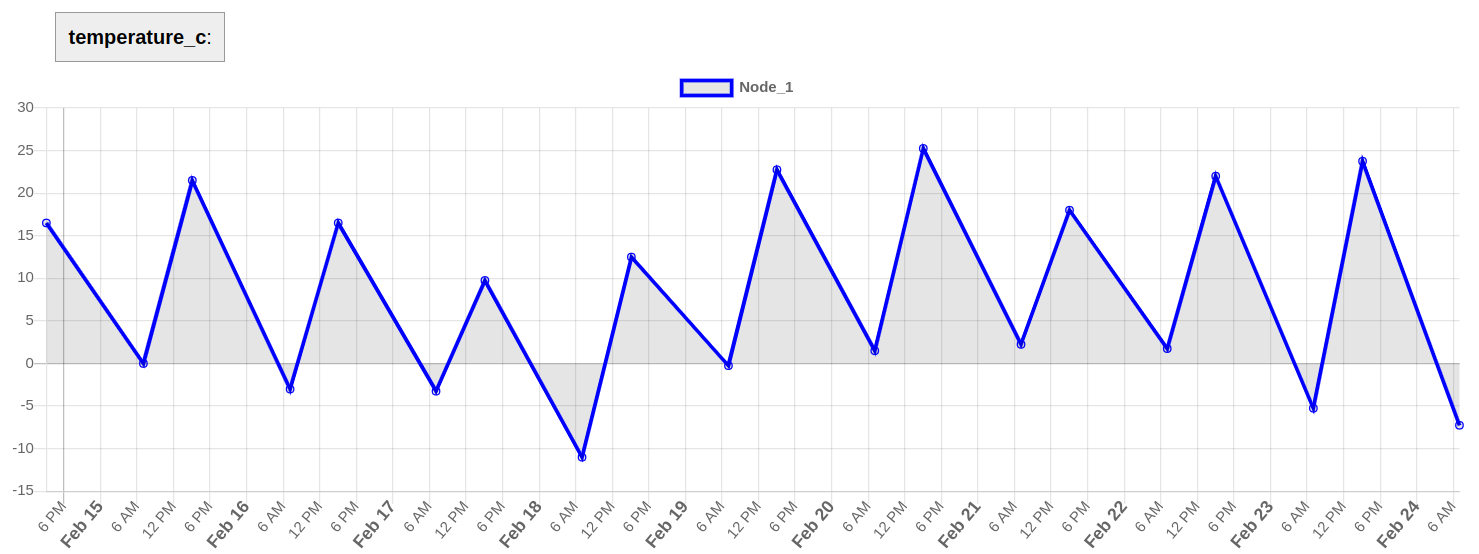
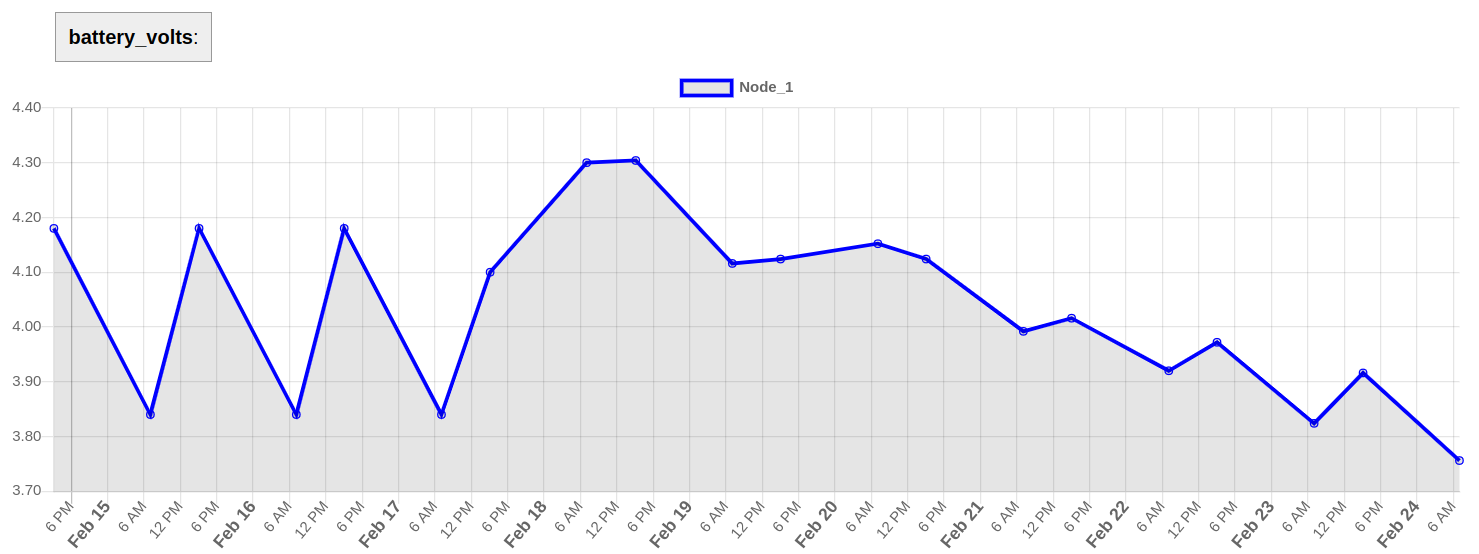
Sun Feb 25 07:19:04 PM EST 2024
Mike B. suggests the L91 ...
... and points to the fact that many battery chemistries ought not to be charged at low temperatures
Manual for charger (similar to one that) I purchased here
Batteries that work best in cold weather
Discussion of temperature compensation
How to keep batteries warm in winter
https://www.amazon.com/dp/B07VDRGK9F
Wed May 15 07:58:41 PM EDT 2024
https://www.eevblog.com/forum/beginners/switching-12v-power-from-ds3231-open-drain-intsqw-pin/

also here: https://forum.arduino.cc/t/mods-to-ds3231-zs-042-module-for-power-control/1101164
- discusses necessary modifications to make the ebay module work
see post #2 -- also handles higher-voltage circuit
For the low-voltage circuit, the P-channel mosfet could be a DMP1045U or something similar with very low threshold voltage and low on-resistance.
For the high-voltage circuit, the P-channel doesn't need to be logic level, but should have a GS maximum of 20V, and low on-resistance. An IRF9540 would work.
And the BSS138 would work for the small N-channel mosfet.
Mon May 27 09:27:32 PM EDT 2024
Debugging ...
9602 sat modem module main page here
Ah! rockblock needs at least 3.5 volts on the 'li-ion' pin
also -- the 9602 doesn't limit the in-current, which might impact the battery; not a problem for the 9603 (and perhaps not a problem for lead acid chemistry?)
max voltage is 5.5 volts
looks like 5V works well on VEXT -- 3.3V was too low -- perhaps it would've been enough with only the feather, but the sat modem was taking in too much current?
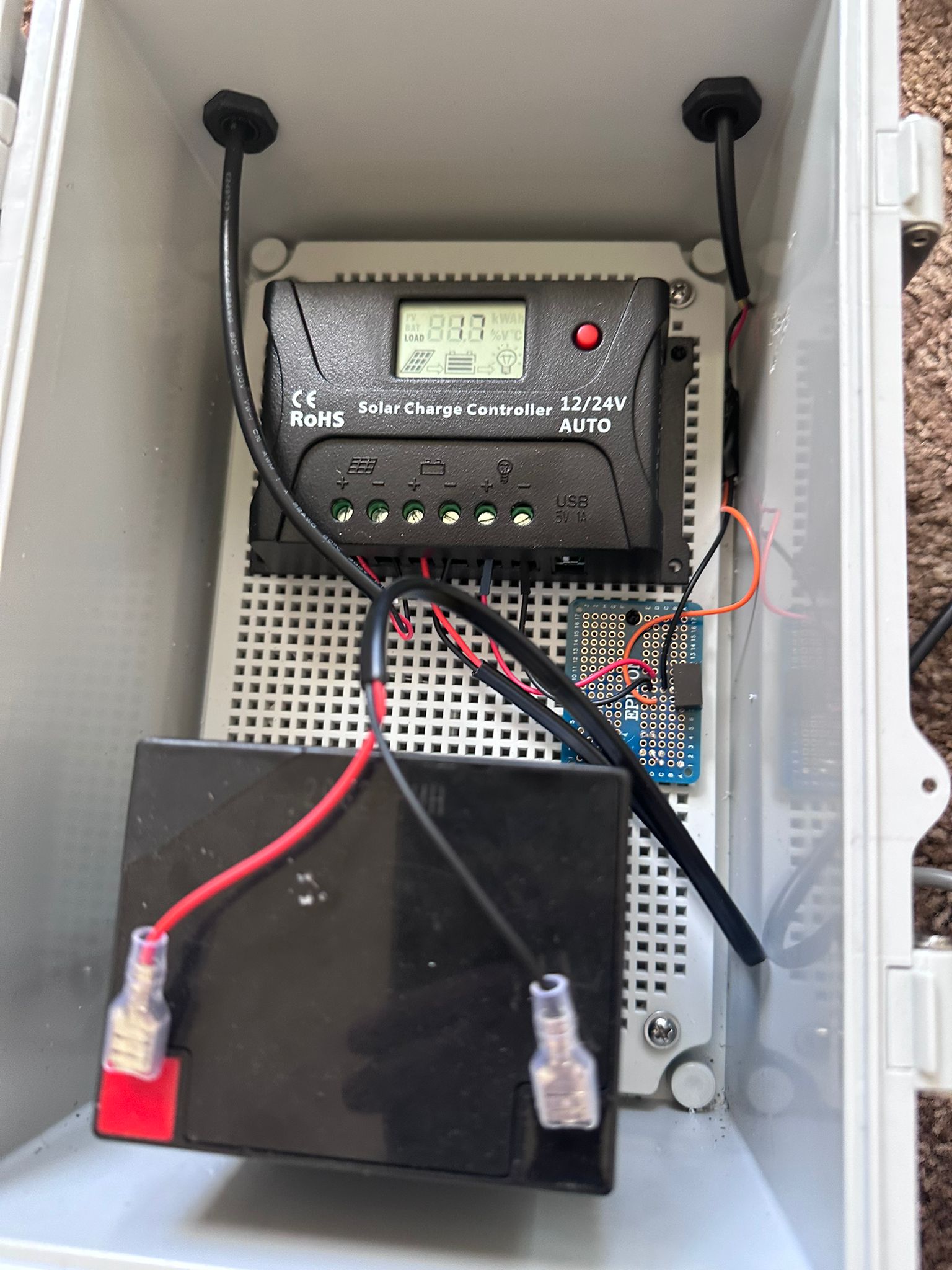
Wed Jun 5 07:05:51 PM EDT 2024
